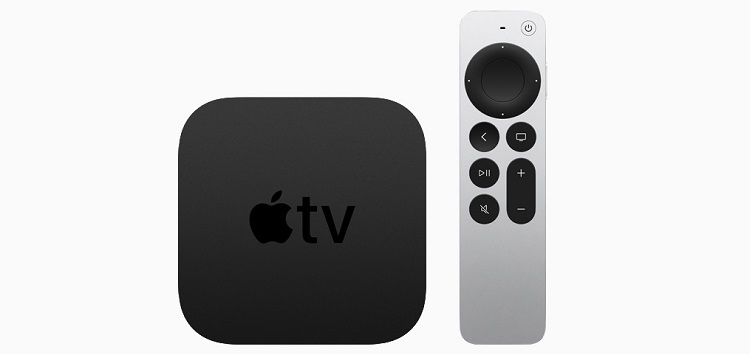#Poll alert!
— PiunikaWeb (@PiunikaWeb) May 9, 2021
Should Google provide native support for smart trackers with a dedicated Android API?
Vote below and read our coverage here: https://t.co/7TfQWkBGri#Opinion #Google #Android #API #smartphone
New updates are being added to the bottom of the story…
Original story (from May 09, 2021) follows:
Apple’s AirTag isn’t the first of its kind. Smart trackers, in case you didn’t know, have existed for a while, only that Apple is making them more mainstream with what definitely is a significantly refined product.
No doubt Apple had ease of use, affordability and design in mind when coming up with AirTags. Of course, there might be some reservations over the design materials/durability, but that’s another story.
Unfortunately, and as you’d expect, AirTags are only a joy to use in a world full of other Apple users. The smart tracker taps into Apple’s Find My network on iPhones, iPads, or Macs to make it easy to locate.

What this means is that if the AirTag is somewhere with more Apple devices connected to the internet, locating it is even much easier and more accurate than when fewer Apple devices are around.
And having fewer Apple devices could mean having more Android devices around. That said, where does this leave users of the world’s most popular smartphone platform?
Android smart trackers
As noted earlier, Apple’s AirTag isn’t a revolutionary product. Smart trackers have existed before and as you may have guessed, Apple’s biggest rival, Samsung, has its own offering.
Dubbed Samsung SmartTag, the Korean company unveiled the tracker earlier this year alongside the Galaxy S21 series. Not long ago, a newer model — SmartTag+ — was also unveiled.

The Galaxy SmartTag+ works in a similar manner to Apple’s, relying on wireless connectivity (Bluetooth and Ultrawide Band – UWB) to tap into Samsung’s SmartThings Find network to locate non-connected devices.
Essentially, this means that like AirTags, SmartTags also heavily rely on the presence of other Samsung devices in the vicinity to provide speedy and accurate location.
This reliance on SmartThings Find to provide accurate location means that SmartTags are not an iPhone user’s cup of tea, you know, just like vice versa is also true.
With Apple and Samsung already in the market, this is likely to kickstart the entry of many other low-cost smart trackers into the market, most probably from Android vendors.
And since none of the new entrants will be able to fully take advantage of both Samsung’s SmartThings Find and Apple’s Find My services, they’ll need their own services for better, more accurate results.
Heck, even the popular Tiles rely on the company’s proprietary Bluetooth hardware dubbed Find with Tile to accurately locate stuff, just like Samsung and Apple.

Eventually, each vendor that tries their hand in the smart tracking business will end up owning their own framework for quickly and easily locating other devices from their respective portfolios.
Xiaomi would have its own Find network to locate Mi, Redmi, and Poco smartphones, Mi Band fitness trackers, Mi Notebooks, and the many Xiaomi smart products on offer.
A similar scenario would also be true for Oppo, Vivo, Huawei, Motorola, LG, Realme, Nokia, OnePlus, Asus, and the many other vendors that may be looking to grab a piece of this massive cake.
With every Android vendor set to come up with their own version of AirTags that are likely to work best within their own ecosystems, Google needs to step in for sanity to prevail.
An equivalent to Apple’s ‘Find My’ or Samsung’s ‘SmartThings Find’ from Google that can be used by 3rd-party trackers to plug into the billions of Android devices across the planet is a good place to start.

Thanks to the already dominant Google Play services, the smart tracker API would result in the biggest ecosystems that not even Apple could match thanks to the sheer number of Android devices out there.
We’ve seen Google taking similar steps with things like Messages app to enable RCS messaging on all devices and Nearby Share for universal file transfer across Android and Chrome OS devices.
With the API available to the public, developers will likely build bridging software for things like Samsung SmartTags to be incorporated into Google’s framework, thus adding more devices to the network.
Who knows, maybe even Samsung could join the party and use this would-be universal smart tracker API.
Unfortunately, Google can really take its sweet time when it comes to implementing certain features that the rest of us may deem useful. RCS and the relatively unknown Nearby Share are recent examples.
This is further corroborated by the fact that Tile has been around for a while yet Google hasn’t showed any desire to make a smart tracker API to use for tracking.
I hope this changes sooner rather than later, at least before the smart trackers market for Android users becomes messy.
Let us know your thoughts on this in the comments section below. You may also cast your vote on the Twitter poll below, with results to be published after a week.
Update 1 (May 16, 2021)
And our readers have spoken. Out of those who cast their vote, 78.9% believe Google should provide native support for smart trackers with a dedicated Android API, 15.8% say it’s never coming while 5.3% consider that’s unnecessary.
PiunikaWeb started as purely an investigative tech journalism website with main focus on ‘breaking’ or ‘exclusive’ news. In no time, our stories got picked up by the likes of Forbes, Foxnews, Gizmodo, TechCrunch, Engadget, The Verge, Macrumors, and many others. Want to know more about us? Head here.

![[Poll results out] Smart trackers market for Android users is about to get messy unless Google steps in fast [Poll results out] Smart trackers market for Android users is about to get messy unless Google steps in fast](https://stage.onepluscorner.com/wp-content/uploads/2021/05/Apple-AirTags.jpg)
